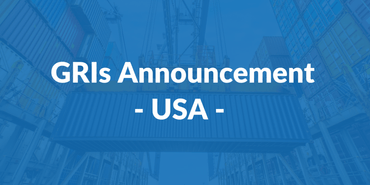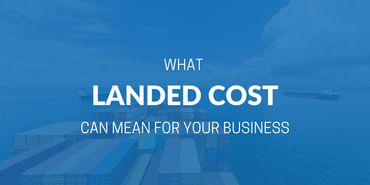
What are demurrage, detention, and per diem fees?



![]()
International shipping is a complex subject that includes many variables. Proper handling paves the way for a reliable and cost-effective management of your ocean freight shipment. That’s regardless of whether you ship one container every now and then, several per month, or more than ten per day.
Many businesses depend on viable international shipping processes to ensure the persistence of partnerships and clients and sustain profitability. Avoiding delays is critical to guarantee an uninterrupted operation. However, your international shipments could face shipping delay charges resulting from various clearance issues. Sufficient preparation and understanding the different resulting charges in advance is key.
Shipping delay charges: The storage misconception
When it comes to clearance delays, importers and exporters seem to throw around three terms interchangeably: demurrage fees, detention fees, and per diem. From common usage, it may seem like they all mean storage when they, in fact, do not.
If your international shipment stays beyond a certain amount of allowed free time at a site, you face storage charges. That includes ports, airline terminals, rail facilities or a bonded warehouse. The storage fee compensates the facility for the use of their space and equipment, i.e. a container taking up space or blocking processing. The amount of free days and the charge for storage will differ from one facility to another. This is often also based on the volume you or your freight forwarder is passing through the facility.
Demurrage charges
Steamship lines and airlines will charge you demurrage fees to compensate for the use of their shipping containers (some airlines use containers for air freight). You are granted a limited number of free days, depending on the carrier and the location. After your free time runs out, you will be charged demurrage fees for each additional day. These charges tend to increase per day after exceeding a certain amount of days.
Demurrage charges are in place to discourage using the provided containers for storage and to compensate for container usage. Before you pick up your international shipment, you must pay all demurrage charges in full. The fee may differ greatly from carrier to carrier and from port to port.
Here’s an example of demurrage fees: You have 7 days of free container usage. After that, a charge of $100 per day applies for 3 days. From 4 to 10 days, the fee rises to $250 and finally to $350 for any day exceeding ten days.
Detention charges
Detention fees usually apply to domestic trucking. The trucking or drayage company bills you for the so-called detention of their trucker or driver in cases. This happens when the loading or unloading of your shipment or containers takes too long. Detention fees are billed at an hourly rate. You can usually expect a free time or grace period of around one to two hours for loading or unloading a container. But this will depend on whether it is a domestic shipment or destined for import or export.
A trucking company will also charge detention fees if their drayman/trucker has to wait until the loading/unloading of a shipment. This will happen in cases of congestion at the facility - when a port of railroad dock is busy. Demurrage charges due to extreme congestion form, unfortunately, a frustrating part of international shipments. You have to pay these fees even though the congestion is beyond your control or that of your freight forwarder.
A second definition of detention can be a storage charge. A carrier may call it detention when you leave a container shipment beyond a certain amount of free time at the terminal. The common name for this case is Per Diem (see below).
Per diem charges
Per diem charges (from the Latin, meaning per day) applies when you require the use of equipment beyond a set amount of free time. Steamship lines and airlines charge these Per diem charges, and equipment include ocean containers and unit load devices (ULD). You have some free days, depending on the equipment and the carrier, before per diem charges kick in. With imports, the charge applies to cargo leaving the arrival terminal. With exports, it applies to shipments leaving the departing terminal. Per diem charges accumulate until you return the equipment to the terminal of the port, rail yard dock or airline.
These terms of shipping delay charges are often (and incorrectly) used interchangeably. That often results in confusion when receiving your bill for detention, demurrage and per diem charges. Always clarify in advance what shipping delay charges you face for which specific case of delay.
Related Articles


